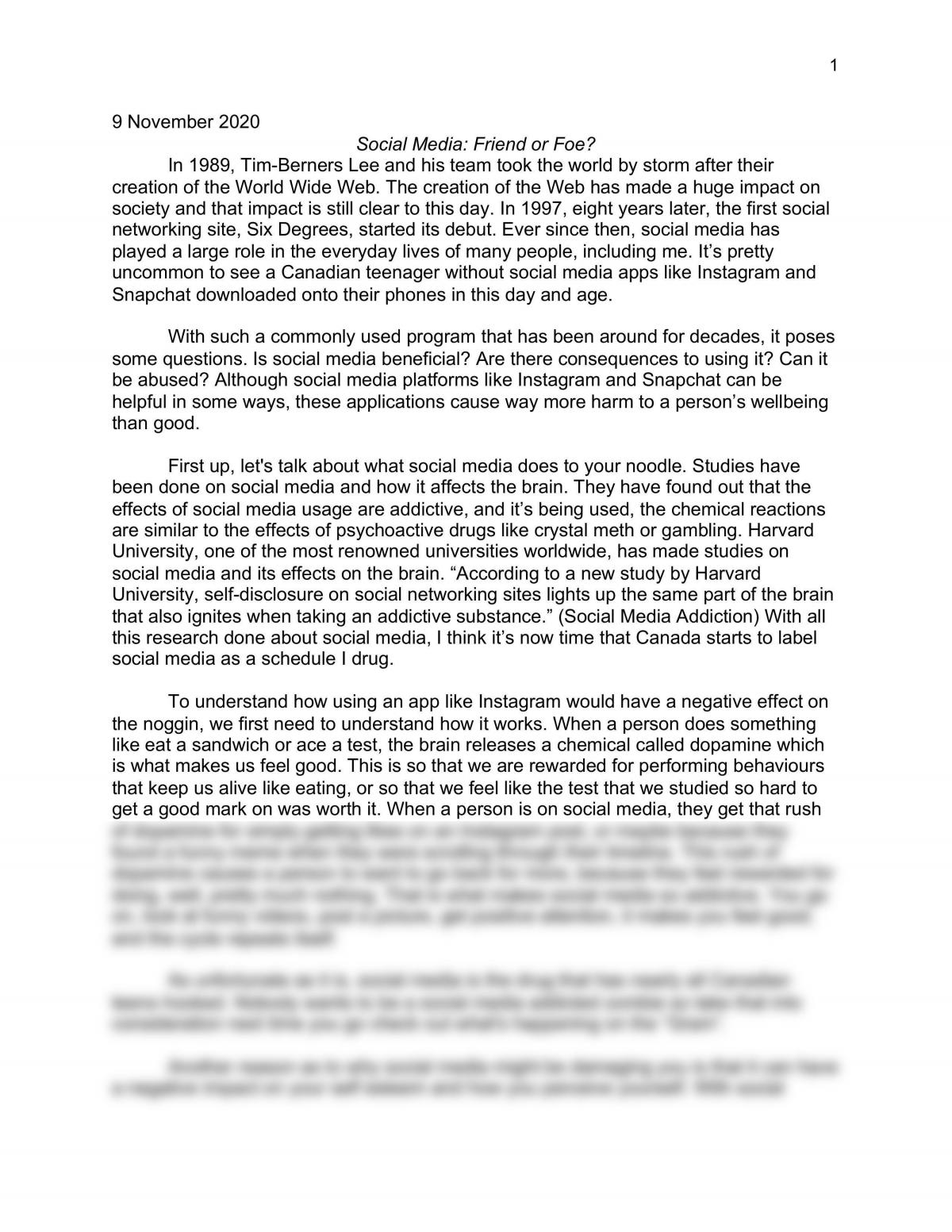Do you wonder whether social media is really helpful? While it certainly connects people by the minute, it can also lead to toxicity and manipulation. These negative aspects aren’t always immediately obvious. In this essay, you’ll learn about three issues that you should consider before answering the question, “Does social media do more harm than good?”
Disadvantages of social media for young people
There are numerous advantages of social media for young people. But youth must understand how to use it wisely. To avoid potential cyberbullies and threats, youth should limit the time they spend on social media. They can learn from experts and learn strategies that will help them make the best use of the platform. Let’s take a look at some of these advantages and disadvantages of social media for youth. And remember, these are just a few of the advantages of social media for youth.
One of the greatest benefits of social media for youth is the ability to stay connected with people all over the world. Whether you’re sitting at home, at the office, or on the beach, you can connect with people through social media platforms. These networks make it easier than ever to communicate with the people you love. Social media is especially beneficial for those who want to share their thoughts and opinions with others. The most popular advantages of social media for youth are discussed below.
Addiction to social media
An addiction to social media is a serious problem, especially for young people. Adolescents are highly impulsive and require a growing social influence to reaffirm their group identity. Besides, teens become stressed if their computer is down or their social media is slow. Increasingly, they use these networks to communicate with friends and family, rather than going outside of their homes. However, their addiction to these networks can harm their health and negatively impact their lives.
The brain has reward centers that become active when a person talks about themselves. In the non-virtual world, people spend thirty to forty percent of their time talking about themselves, and the same principle applies to social media. The addictive nature of social media is in its ability to make one feel good through positive social feedback, which encourages a person to repeat the same behavior. Moreover, if a social network user has a bad day or is feeling down, they may use social media as a distraction.
Misinformation spread on social media
Almost 70% of people believe that social media companies spread misinformation. Only one in five disagree with this statement. Facebook particularly took a beating in the poll. Eight out of ten respondents said the company does a poor job handling misinformation on its platform. Despite this, the majority of users did not know how to assess posts that contained misinformation. This makes it crucial to know how to identify the sources of misinformation, and to supplement their news from other sources with more credible information.
The research presented in this paper has significant implications for policy-makers. The dissemination of misinformation can be controlled by analyzing the diffusion characteristics of misinformation on social media. A method called deep learning can be used to analyze content and emotion characteristics. In addition, it can be combined with a network analysis method to study network diffusion characteristics of misinformation. This approach helps policymakers, activists, and users identify misinformation and act on it.
Impact of social media on body image
Social media use has been linked to body image dissatisfaction in recent studies. While some studies find a positive association between social media use and negative body image, others have found no connection at all. In both cases, the authors suggest that social media can indirectly influence body dissatisfaction. They note that the findings from these studies are limited by the nature of their sample. Further, these studies do not consider whether social media affects adolescents’ mental health, a potential limitation of the current study.
While the impact of social media on body image is still in its infancy, researchers have concluded that social media use is associated with a negative mental health and body image. A systematic review of 20 papers concluded that photo-based activities were problematic for body image. Further, the findings suggest that social media use may exacerbate existing mental health conditions. A lack of awareness about the negative impact of social media on body image may contribute to the disorder.

